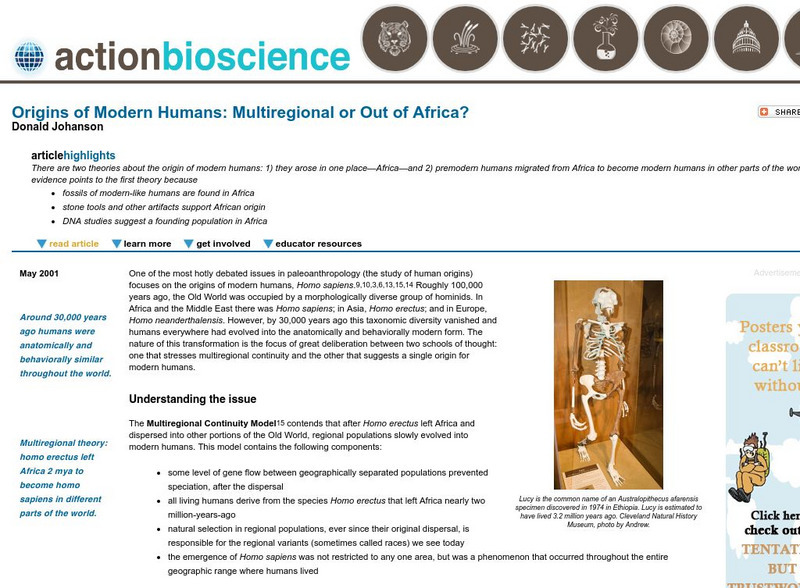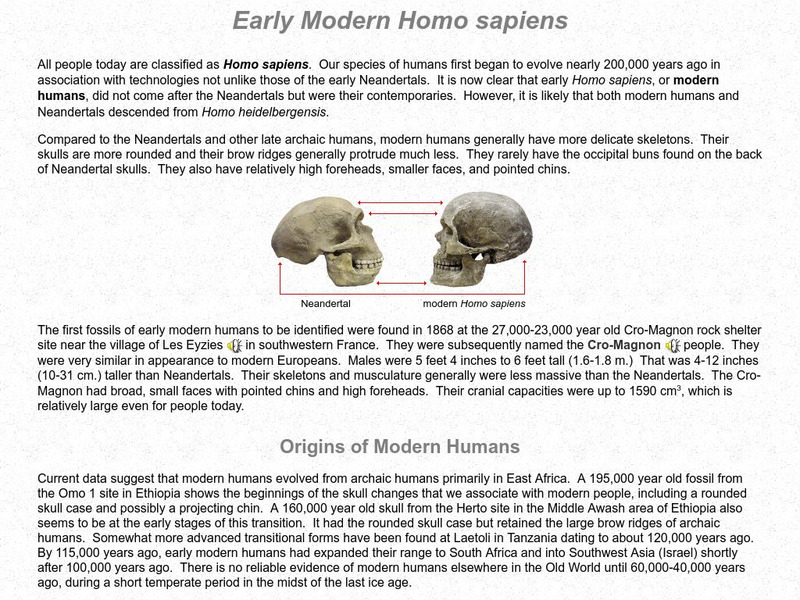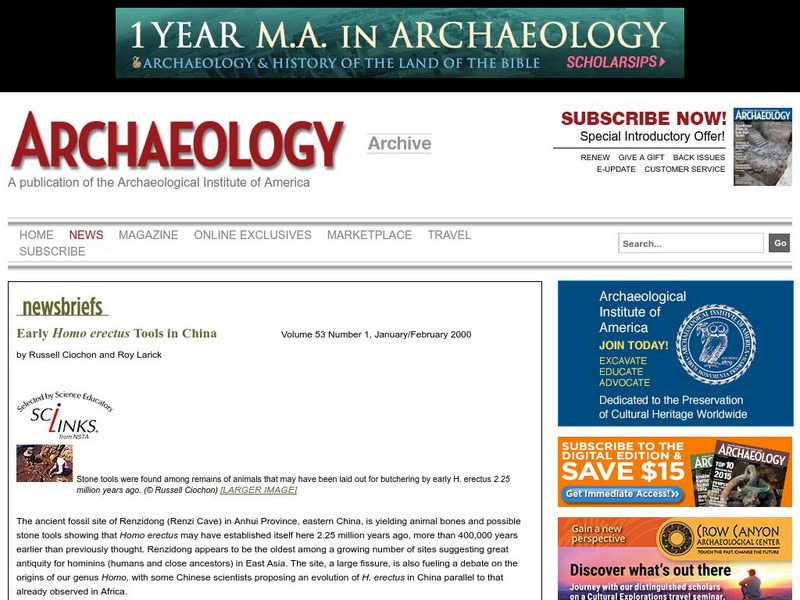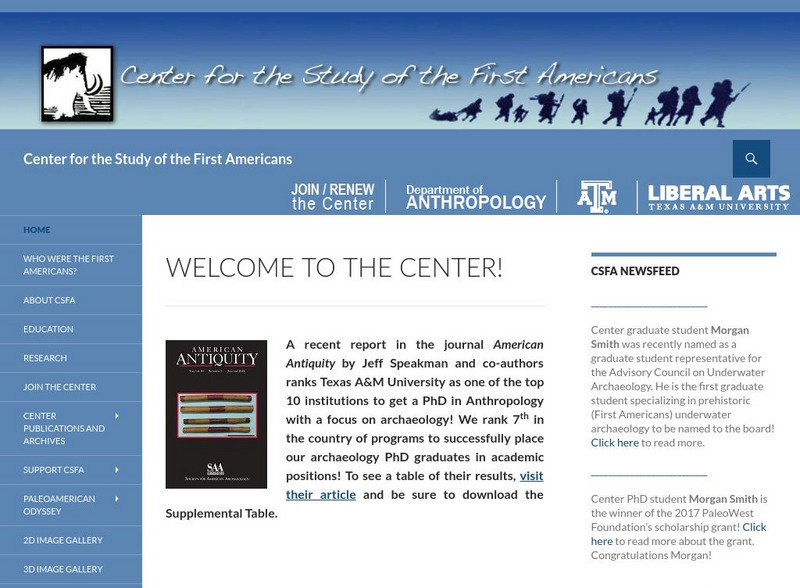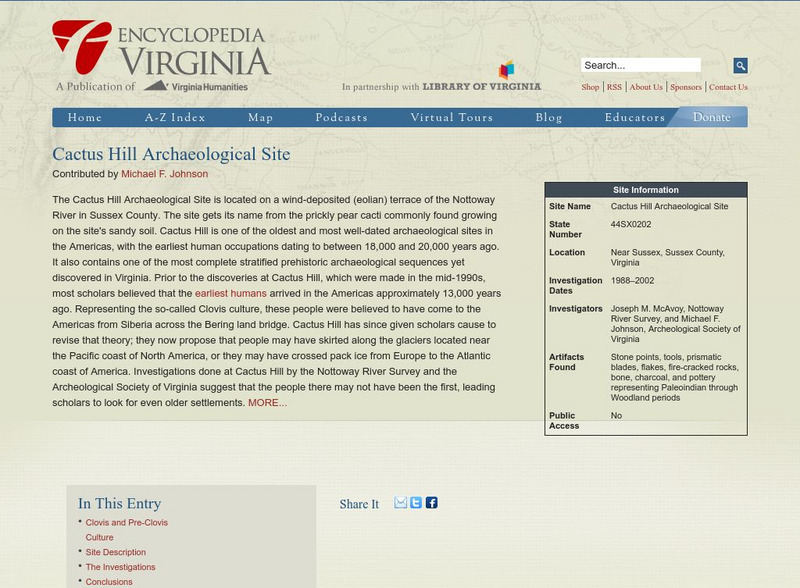Khan Academy
Khan Academy: Activity: Human Migration Patterns
Use this activity to figure out where the first humans lived. This activity requires students to read clues and use their understanding of the clues to create a map to give them a visual representation of early humans movements.
A&E Television
History.com: How Early Humans Survived the Ice Age
The most recent ice age peaked between 24,000 and 21,000 years ago, when vast ice sheets covered North America and northern Europe, and mountain ranges like Africa's Mt. Kilimanjaro and South America's Andes were encased in glaciers. At...
BBC
Bbc News: Early Humans Followed the Coast
The theory of coastal migration of early Americans down the coast of California has been gaining much consideration. Read about some of the evidence supporting this theory.
The Henry Ford
Early 20th Century Migration: Transportation: Past, Present and Future [Pdf]
A teacher's guide and unit plan that explores the migration of people from within and to the United States in the early 20th century up to the present day, many of them to work in the automobile factories in the northern US. Additional...
American Institute of Biological Sciences
Action Bioscience: Origins of Modern Humans: Multiregional or Out of Africa
Two migration theories are on the table for consideration. Weigh the evidence of each one in this article by Donald Johanson of Lucy fame.
Khan Academy
Khan Academy: Gallery: How Did the First Humans Live?
Follow the human migration with this gallery that allows you to observe how our ancestors lived and gathered food.
Other
Simon Frasier University: A Journey to a New Land
This interactive site examines questions about early human migration to North America offers grade-level appropriate information for primary, elementary, middle, secondary and post-secondary levels. Teacher resources, simulations, video,...
Palomar Community College District
Palomar College: Early Modern Homo Sapiens
An easy-to-understand article traces the origins of modern humans through the use of a simple graph. Various models of migration are also discussed.
Archaeological Institute of America
Early Homo Erectus Tools in China
An article which describes a fossil site in eastern China where evidence has been found that Home erectus may have been active in eastern China some 400,000 years earlier than scientists believed. The authors also summarize the debate...
National Humanities Center
National Humanities Center: Toolbox Library: Making of African American Identity: The Promised Land?
A short story and a painting illustrating African American perceptions of Northern cities. Rudolph Fisher's short story "The City of Refuge" and William H. Johnson's painting Moon over Harlem offer insight into life within the black...
Other
Mitochondrial Dna Adaptations in Human Population (2004)
Hawks's research involves the use of mtDNA studies to hypothesize the ability to survive in certain climatic zones.
Other
Center for the Study of the First Americans
This institute attempts to provide answers to the questions: when did the first people enter the Americas, who were the first immigrants, where did they come from, and how did they get here?
Other
Cabrillo College: The Men From Spirit Cave and Wizard's Beach
Read about the discoveries of the Spirit Lake Man and Wizard's Beach Man.
Other
Encyclopedia Virginia: Clovis and Pre Clovis Culture
The evidence found at excavations at Cactus Hill in Virginia are pushing back the dates of the appearance of humans in the Western Hemisphere. Read about what has been found and the theories of how man reached the east coast of America...
Curated OER
Unesco: Tanzania: Ngorongoro Conservation Area
The Ngorongoro Conservation Area spans vast expanses of highland plains, savanna, savanna woodlands and forests. Established in 1959 as a multiple land use area, with wildlife coexisting with semi-nomadic Maasai pastoralists practicing...



